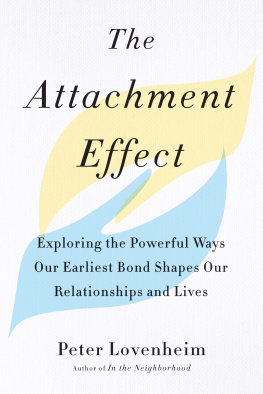Copyright 2016 Houghton Mifflin Harcourt Publishing Company
All rights reserved
www.hmhco.com
cliffsnotes.com
No part of this work may be reproduced or transmitted in any form or by any means, electronic or mechanical, including photocopying and recording, or by any information storage or retrieval system without the prior written permission of Houghton Mifflin Harcourt Publishing Company unless such copying is expressly permitted by federal copyright law. For information about permission to reproduce selections from this book, write to or to Permissions, Houghton Mifflin Harcourt Publishing Company, 3 Park Avenue, 19th Floor, New York, New York 10016.
The publisher and the author make no representations or warranties with respect to the accuracy or completeness of the contents of this work and specifically disclaim all warranties, including without limitation warranties of fitness for a particular purpose. No warranty may be created or extended by sales or promotional materials. The advice and strategies contained herein may not be suitable for every situation. This work is sold with the understanding that the publisher is not engaged in rendering legal, accounting, or other professional services. If professional assistance is required, the services of a competent professional person should be sought. Neither the publisher nor the author shall be liable for damages arising here from. The fact that an organization or Website is referred to in this work as a citation and/or a potential source of further information does not mean that the author or the publisher endorses the information the organization or Website may provide or recommendations it may make. Further, readers should be aware that Internet Websites listed in this work may have changed or disappeared between when this work was written and when it is read.
Trademarks: CliffsNotes, the CliffsNotes logo, Cliffs, cliffsnotes.com, and all related trademarks, logos, and trade dress are trademarks or registered trademarks of Houghton Mifflin Harcourt Publishing Company. All other trademarks are the property of their respective owners. Houghton is not associated with any product or vendor mentioned in this book.
Library of Congress Cataloging-in-Publication data is available.
eISBN 978-0-544-78568-7
v1.1215
AT-A-GLANCE
Harper Lees Go Set a Watchman narrates the homecoming of Jean Louise Finch as she faces a community rife with racial tension, an old friend turned love interest, and a father who no longer seems as perfect as she once believed him to be.
Jean Louise Finch returns to her childhood hometown of Maycomb, Alabama, for what she expects will be a typical visit. Soon, however, her growing attraction to an old friend named Hank begins to complicate her stay. Her difficulties grow even further with her discovery that both Hank and her father are part of an organization dedicated to preserving racial segregation. Jean Louise, who has always known her father as a champion of civil rights, feels betrayed. No longer sure whom she can trust, Jean Louise lashes out against the people she loves and condemns them for tolerating racism. Gradually, through conversations with her uncle Jack, Jean Louise learns to accept that her father is imperfect and human, capable of doing bad things as well as good.
Written by: Harper Lee
Type of Work: Coming-of-age novel
Genre: Fiction
First Published: 2015
Setting: Maycomb, Alabama
Main Characters: Jean Louise (Scout) Finch; Atticus Finch; Henry (Hank) Clinton; Alexandra Finch Hancock; Dr. John Hale (Jack) Finch
Major Thematic Topics: Racism; identity; heroes and role models; human imperfection; coming of age
Major Symbols: Low car doors; the Doxology; the ice cream parlor (where Jean Louises house used to stand); the Maycomb courthouse
The three most important aspects ofGo Set a Watchman: One important aspect of Go Set a Watchman is its complex relationship to Harper Lees earlier novel, To Kill a Mockingbird, published in 1960. Although it is set almost two decades after To Kill a Mockingbird and was published more than fifty years later, Go Set a Watchman was written first. The two books share common characters, a common setting, and even several passages (mostly descriptions of Maycomb or brief vignettes from Jean Louises childhood) that appear the same, word for word, in both books. However, the tone each book adopts and the world each book describes are significantly different. In To Kill a Mockingbird, Atticus appears fully committed to the cause of racial reconciliation, sacrificing his reputation in the white community to defend a black man named Tom Robinson in a trial that he ultimately loses. In Go Set a Watchman, Atticus has previously won a trial defending a nameless black man; however, his belief that change must come slowly and that the civil rights movement is dangerous and meddlesome tempers his desire to treat all races equally. These differences have led to disputes between readers who believe that the two versions of Atticus ought to be read as different characters and readers who think of Go Set a Watchmans Atticus as providing greater nuance to the simpler Atticus of To Kill a Mockingbird.
A second and closely related important aspect of Go Set a Watchman is its emphasis on the importance of humanizing heroes. In the novel, Jean Louise has spent her whole life idealizing Atticus and using him as a standard for her own ethics. Seeing Atticus in the company of men she knows to be racists and realizing that he is not as staunch a supporter of equal rights as she once believed forces Jean Louise to separate her own conscience from her fathers. (Ironically, many readers have similarly idealized Atticus Finch and found the notion of his being anything less than perfect to be intolerable.) Although it pains Jean Louise to lose her childhood vision of her father, she comes of age as an independent thinker. As her frequent memories from childhood and puberty emphasize, growing up is a layered and complex process that happens bit by bit.
Finally, the novel offers an important look at the nature of racism in the 1950s South. Whereas racism is easy to identify and condemn in To Kill a Mockingbird, the lines between right and wrong are not as clear in Go Set a Watchman. In this novel, people cannot easily be divided into racists and non-racists. Instead, everyone bears the marks of having lived in a racist society although characters reflect this systemic racism in different ways and to varying degrees. Go Set a Watchman focuses not only on blatant manifestations of racism but also on insidious cultural patterns. In this sense, the novel is surprisingly well suited to the time in which it has finally been published, as a supposedly post-racial America wrestles with residual racial tensions that refuse to disappear.
BOOK SUMMARY
Go Set a Watchman covers four primary periods in the life of Jean Louise Finch:
1. Childhood Memories
Although Go Set a Watchman is set when Jean Louise is 26 years old, her flashbacks to childhood make up a significant portion of the novel. Jean Louises mother died when Jean Louise was 2 years old, and her father, Atticus, and her familys black cook, Calpurnia, raised her. As a young girl, Jean Louise spent most of her time playing games of make believe with her brother, Jem, and their friend Dill. During this childhood, Atticus defended a black man accused of rape in a high-profile trial.
When Jean Louise reached puberty, she found herself needing to rely on someone other than Atticus for the first time. Because she didnt have a mother and never received a systematic sex education, she was misled by one of the girls at her school into thinking that kissing causes pregnancy. After a boy kissed her against her will, she thought she was pregnant and tried to commit suicide, but Hank rescued her. After this, Calpurnia gave her the sex education she never got from her mother.
Next page

















